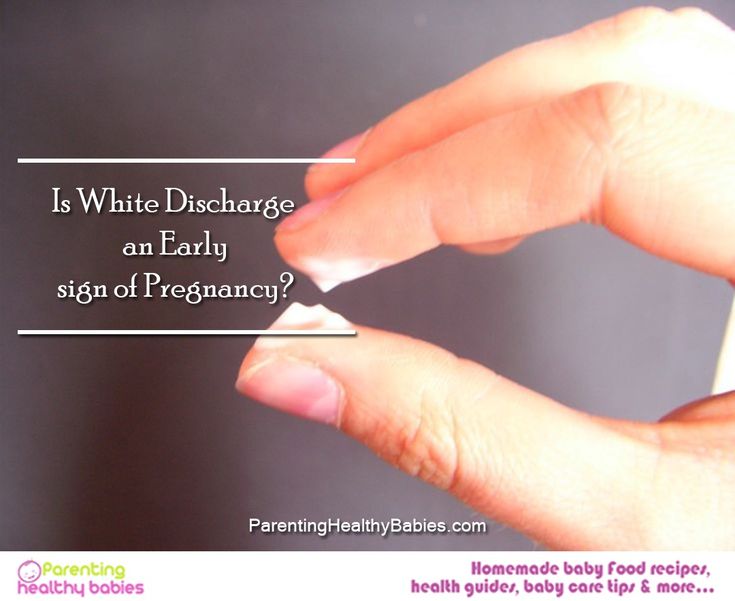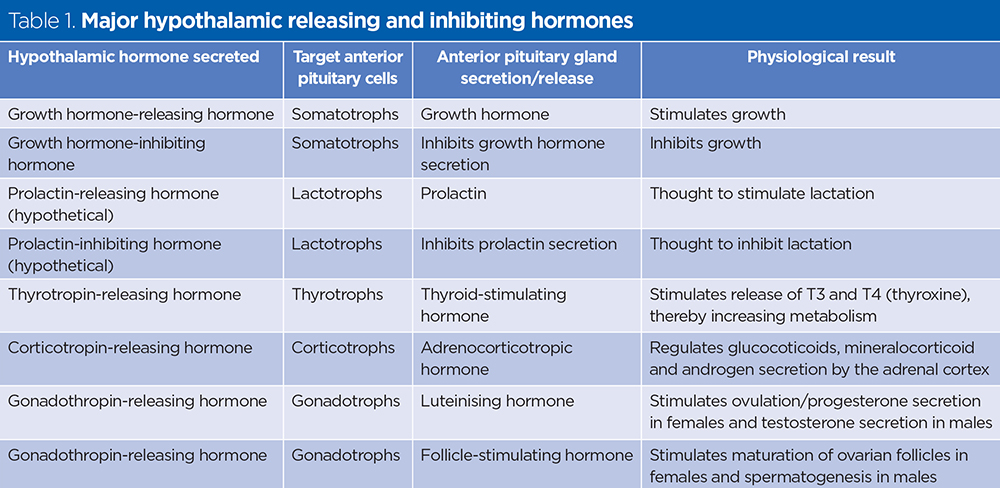How do you know if your baby is stressed in the womb
Fetus to Mom: You're Stressing Me Out!
Dr. Calvin Hobel, a perinatologist in Los Angeles, has spent much of his career trying to document the effects of stress on pregnancy and to figure out how best to get pregnant women to relax. Not only does he see the importance clinically, but he's reminded of it daily.
Beginning with his 45-minute commute to Cedars Sinai Medical Center, Dr. Hobel watches women putting on makeup in their cars, wolfing down bites of breakfast ... and the clincher? Pregnant women who come to yoga classes to learn how to relax have to take a breather -- to answer cell phones they just couldn't leave behind.
Stress is such a familiar part of women's lives that many just squeeze a pregnancy right into all the hubbub. Even if women wonder whether it's bad for their developing fetuses, it's often hard to get a straight answer, mainly because most doctors don't know how much stress is too much -- or for whom.
But researchers, including Hobel, are getting closer to unlocking the mystery.
For one thing, a growing number of studies are confirming what used to be considered just an old wives' tale -- that stress really isn't good for pregnant women. It not only increases the risk of pre-term labor, but possibly a host of other problems for babies after birth.
Even more important -- and clearly more difficult to discern -- researchers are close to being able to predict who's most susceptible to stress and at highest risk for complications, such as pre-term birth. In fact, some say it won't be long before health-care providers have the tools to head off these problems before it's too late.
"Stress is a silent disease," says Dr. Hobel, director of maternal-fetal medicine at Cedars Sinai and a professor of obstetrics/gynecology and pediatrics at University of California, Los Angeles (UCLA). "Pregnant women need to be educated in recognizing when they have stress, the consequences and some of the simple things they can do to make a difference."
Throw Out the 'Blueprint'
Developmental biologists once thought fetuses were conceived with a "blueprint" from their parents' genes. As long as you gave the growing fetus the right nutrients and avoided harmful substances, this blueprint would develop into a healthy baby. That's not what experts believe anymore, says Dr. Pathik Wadhwa, assistant professor of behavioral science, obstetrics and gynecology at University of Kentucky College of Medicine.
As long as you gave the growing fetus the right nutrients and avoided harmful substances, this blueprint would develop into a healthy baby. That's not what experts believe anymore, says Dr. Pathik Wadhwa, assistant professor of behavioral science, obstetrics and gynecology at University of Kentucky College of Medicine.
"This view has more or less been completely turned upside down," says Dr. Wadhwa, who is co-editing a special issue of scientific papers on pregnancy and stress to be published in Health Psychology next year. "At each stage of development, the organism uses cues from its environment to decide how best to construct itself within the parameters of its genes."
Stress is an example of how a fetus responds to stimuli in the womb and adapts physiologically. "When the mother is stressed, several biological changes occur, including elevation of stress hormones and increased likelihood of intrauterine infection," Dr. Wadhwa says. "The fetus builds itself permanently to deal with this kind of high-stress environment, and once it's born may be at greater risk for a whole bunch of stress-related pathologies.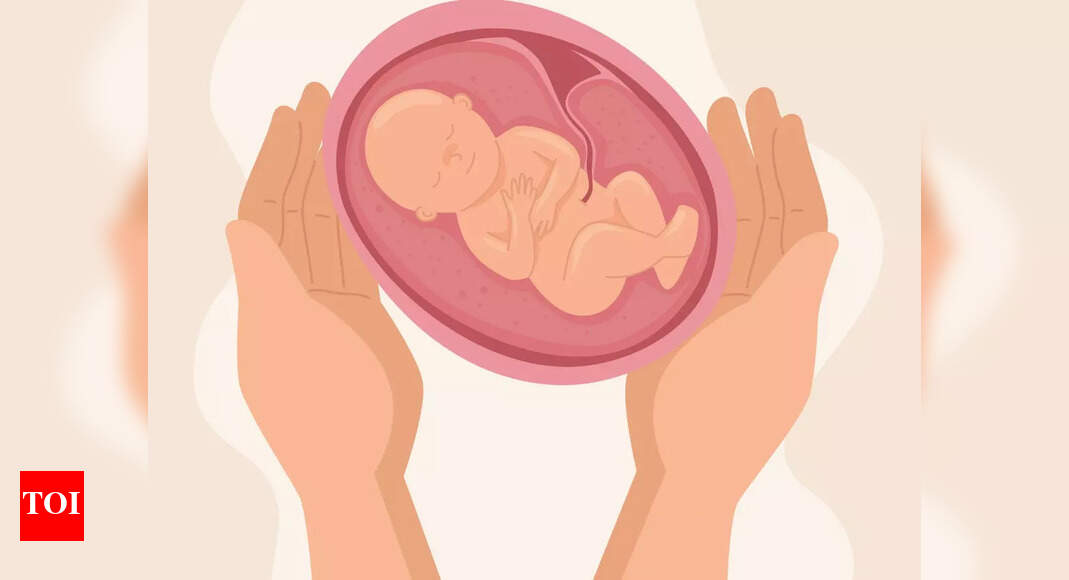 "
"
Pre-term births and low birth weight are among the most recognized effects of maternal stress during pregnancy, established over nearly two decades of animal and human research. Recent studies by Dr. Wadhwa and colleagues suggest that women who experience high levels of psychological stress are significantly more likely to deliver pre-term. Typically, one in 10 women delivers pre-term (before 37 weeks).
Pre-term babies are susceptible to a range of complications later, including chronic lung disease, developmental delays, learning disorders and infant mortality. There's even compelling evidence from epidemiological studies and animal research that babies who experience stress in utero are more likely to develop chronic health problems as adults, such as heart disease, high blood pressure and diabetes.
Most recently, some studies are suggesting that stress in the womb can affect a baby's temperament and neurobehavioral development. Infants whose mothers experienced high levels of stress while pregnant, particularly in the first trimester, show signs of more depression and irritability.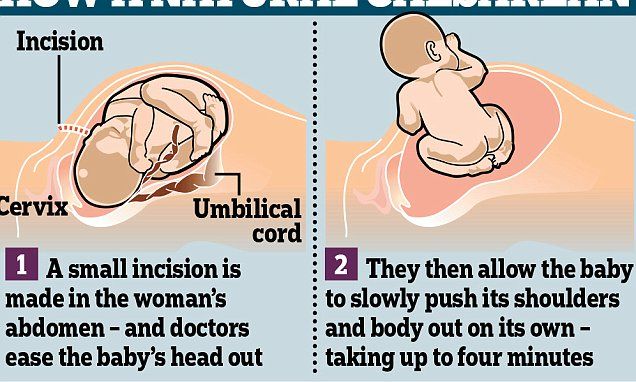 In the womb, they also are slower to "habituate" or tune out repeated stimuli -- a skill that, in infants, is an important predictor of IQ.
In the womb, they also are slower to "habituate" or tune out repeated stimuli -- a skill that, in infants, is an important predictor of IQ.
"Who you are and what you're like when you're pregnant will affect who that baby is," says Janet DiPietro, a developmental psychologist at Johns Hopkins University. "Women's psychological functioning during pregnancy -- their anxiety level, stress, personality -- ultimately affects the temperament of their babies. It has to ... the baby is awash in all the chemicals produced by the mom."
The Womb Is a Busy Place
So, how does a mom's stress get passed onto their fetus? Researchers aren't exactly sure which stress responses play the largest role, but it's clear that when a pregnant woman experiences anxiety, their body produces chemicals that affect the baby, too. Their nervous system, for instance, stimulates the release of epinephrine and norepinephrine, stress hormones that constrict blood vessels and reduce oxygen to the uterus.
Since a very significant decrease in blood flow is probably necessary to compromise development of the fetus, Dr. Wadhwa says that another stress response is more likely to affect fetal growth and pre-term labor. That is, when pregnant women experience stress, particularly in the first trimester, the placenta increases production of corticotropin-releasing hormone (CRH), which regulates the duration of pregnancy and fetal maturation.
CRH is one of the most exciting recent scientific discoveries that could explain why women go into labor when they do. Called the "placental clock," CRH levels measured in the mother's blood early in pregnancy -- between 16 and 20 weeks -- can predict the onset of labor months later. Those with the highest levels will likely deliver prematurely, and those with lowest levels are apt to deliver past their due dates.
And it appears that stressful events occurring during the first trimester are most critical in signaling early labor. "That's very important because it used to be thought exactly the opposite -- that women become fragile as term approaches. Indeed, our data suggests that women become psychologically stronger," says Dr. Curt Sandman, professor and vice chairman of the department of psychiatry at University of California, Irvine.
Indeed, our data suggests that women become psychologically stronger," says Dr. Curt Sandman, professor and vice chairman of the department of psychiatry at University of California, Irvine.
Monitoring CRH levels and managing stress that early in pregnancy may have important implications in reducing pre-term delivery, says Dr. Christine Dunkel-Schetter, a professor of psychology at UCLA. Dr. Dunkel-Schetter is working on two studies (one with Drs. Wadhwa, Hobel and Sandman) to determine who is at highest risk for pre-term birth and what types of stresses are the biggest contributors.
"It appears we will be able to show that stress in pregnant women early in pregnancy leads to an early rise in CRH, which then leads to an early delivery," she says. "What we can't do yet is diagnose which women are most at risk. But we're close, and very soon it will be appropriate for women to be asking their doctors if their level of stress should be assessed systematically."
What's Too Much .
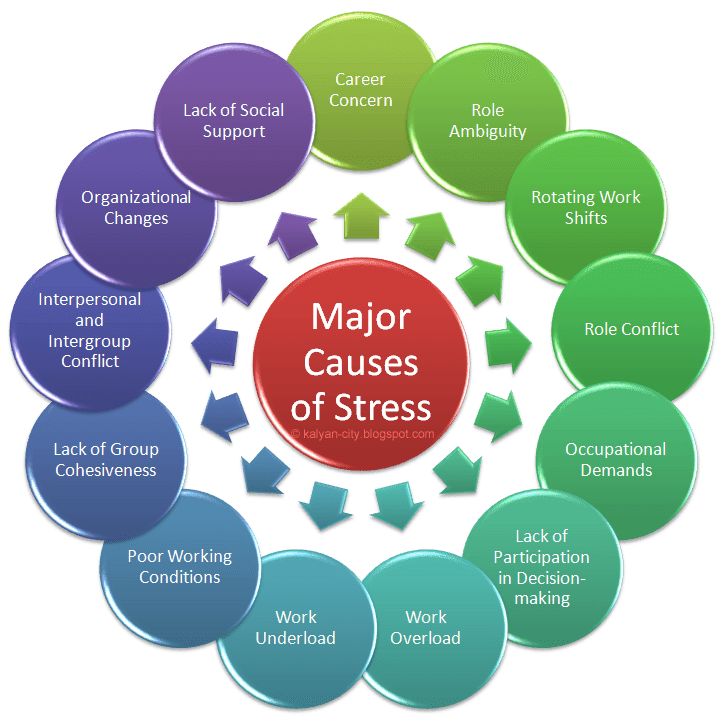 .. and for Whom?
.. and for Whom?Tiffanie Pomerance of Los Angeles remembers when she was admitted to the hospital during her first pregnancy after a sonogram found that her cervix had started to dilate at 19 weeks. Doctors stitched her up but she started having severe contractions and was hospitalized. Everyone, including her husband and family, was worried.
"We just sat in the hospital room staring at the fetal monitor, looking at how many contractions I was having. We all thought I was going to lose the pregnancy," says Pomerance, 32. Her mother finally covered the monitor with a towel when Dr. Hobel explained that worries would exacerbate her condition. Sure enough, she started to notice that contractions got worse when she was more anxious.
In hindsight, Pomerance says her hectic lifestyle as a speech therapist -- working 12-hour days, dividing her time between three nursing homes and grabbing lunch while standing -- probably contributed to her problem in the first place. She slowed down considerably with her second pregnancy. Fortunately, she carried both babies to 35 weeks.
Fortunately, she carried both babies to 35 weeks.
Like most women, Pomerance had no idea how much stress could put her over the edge. "I was under your everyday type of stress. I thought that I would do it all, plus work out every day at the gym. Now I tell anyone who's pregnant to slow down a bit."
That's what makes health providers so reluctant to emphasize the connection between stress and pregnancy problems. They say a lot of the differences come down to women's personalities and how they cope with stress. Besides, who wants to lay even more guilt and anxiety on a woman who is already stressed?
Dr. Dunkel-Schetter says she's hoping to nail down the biggest predictors of stress and devise a questionnaire that women could take, along with the blood test to measure CRH levels, to determine who's at highest risk. She says it appears that women who are constantly anxious or fearful may be most susceptible to problems during pregnancy.
"Stress can be lots of things," she says.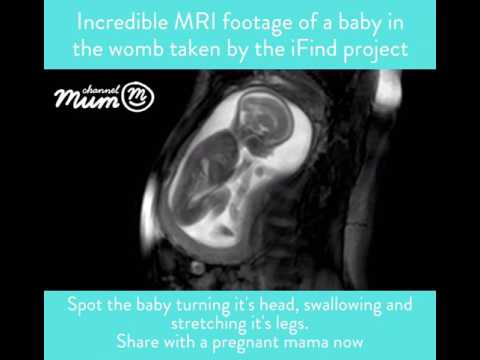 "What you'll see in the literature (are) these lists of life events -- 'Did somebody die? Did you lose your job?' But those events are not what's leading to early delivery. What I see in our work that's leading to early delivery is being a generally anxious person ... for instance, a lot of fear about the pregnancy and delivery."
"What you'll see in the literature (are) these lists of life events -- 'Did somebody die? Did you lose your job?' But those events are not what's leading to early delivery. What I see in our work that's leading to early delivery is being a generally anxious person ... for instance, a lot of fear about the pregnancy and delivery."
But she says it's a continuum. "Low levels of anxiety we all know and feel -- sometimes more, sometimes less," says Dr. Dunkel-Schetter. "The highest level is somebody who has panic attacks or is extremely fearful of many things, and it's probably the case that the higher you are on this continuum, the more risk to your physiology in pregnancy."
Personality traits that might account for some women being better able to handle stress include optimism, self-esteem, a feeling of control over one's life, emotional suppression or expression, and hostility, says Dr. Wadhwa.
So, What's a Mother To Do?
Dr. Hobel worked in France with one of the first obstetricians to successfully reduce pre-term births.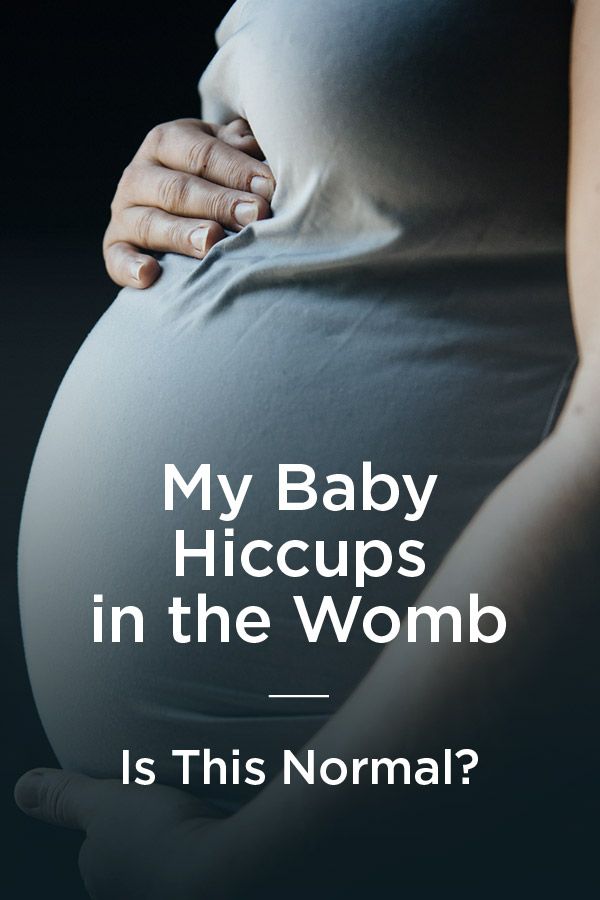 The program he devised included work leaves as early as 24 weeks into the pregnancy and nurse-midwife home visits to help women handle psychosocial stress. He started a similar program for 12,000 women in Los Angeles in the 1980s; pre-term births dropped 21% at a time when pre-term birth rates were increasing in the city and nationally.
The program he devised included work leaves as early as 24 weeks into the pregnancy and nurse-midwife home visits to help women handle psychosocial stress. He started a similar program for 12,000 women in Los Angeles in the 1980s; pre-term births dropped 21% at a time when pre-term birth rates were increasing in the city and nationally.
"I think our whole approach to comprehensive prenatal care today is sort of messed up -- a lot of the focus is on the wrong things," says Dr. Hobel. "We measure a woman's blood pressure, her uterine size, listen to the baby's heart tones, but no one asks how things are going with her life."
The big question, he says, is finding the right interventions. He and Dr. Dunkel-Schetter believe some of those components include the usual methods to reduce stress, including biofeedback, guided imagery and yoga. But what may be equally important are a woman's support network and providing enough information about prenatal care and the pregnancy to ward off worries.
And it's clearly a matter of teaching women how to relax, a foreign concept for many. "No one is telling them that they should look at what they're doing," says Dr. Hobel. It might mean taking Wednesdays off and work Saturdays instead, just to break the fatigue of a week's work; or making sure to take time for breakfast and frequent meals.
"Sure, I think there are some super women that can deal with stress, but if you really study them, you'll recognize that they've got some built-in mechanisms, something about the way they're dealing with their lives, that makes a difference," says Dr. Hobel. "Pregnancy itself is a real stress on the body."
Dr. James McGregor, a professor of obstetrics at the University of Colorado Health Sciences Center, uses another type of test to predict pre-term labor. It's a saliva test that measures another hormone, estriol, which can give up to three-weeks notice of the onset of labor. He's even called employers when it indicates a patient needs to kick back a little.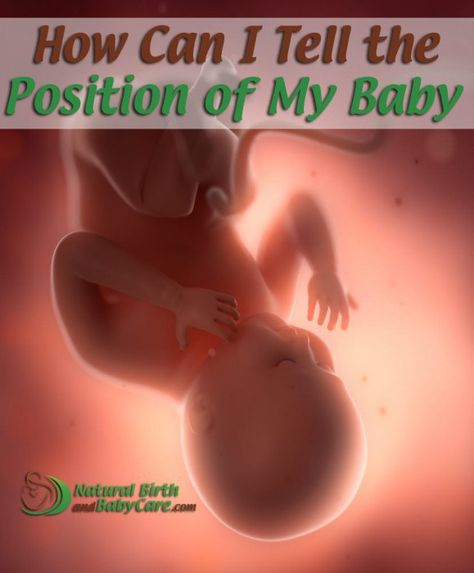
Sometimes, he says, it's hard to persuade pregnant women themselves that they may need to slow down if they're feeling stressed. "Actually everybody knows it, but we kind of deny it," says Dr. McGregor. "Stress comes under the heading of an old wives' tale, but in this case, it happens to be true."
What Is Your Stress Level?
Here are some questions to assess your level of stress during pregnancy, developed by Dr. Calvin Hobel, director of maternal-fetal medicine at Cedars Sinai Medical Center in Los Angeles. For each question, answer "yes," "sometimes" or "no." If you answer "sometimes" or "yes" to three or more questions, says Dr. Hobel, you may have sufficient stress to warrant some form of counseling or intervention. Consult your health-care provider.
- I feel tense.
- I feel nervous.
- I feel worried.
- I feel frightened.
- I have trouble dealing with problems.
- Things are not going well.
- I cannot control things in my life.
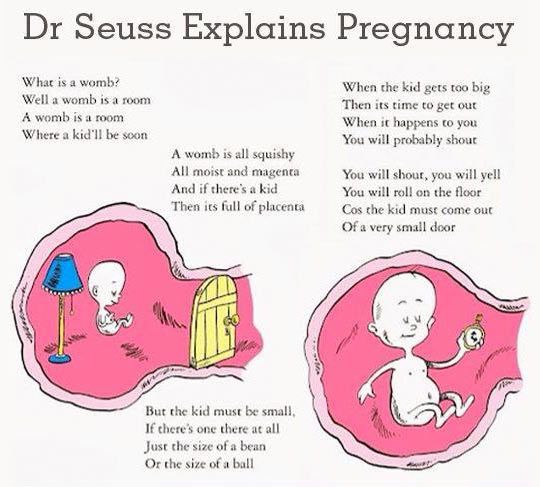
- I am worried that my baby is abnormal.
- I am concerned that I may lose my baby.
- I am concerned that I will have a difficult delivery.
- I am concerned that I will be unable to pay my bills.
- I live apart from my partner or spouse.
- I have extra-heavy homework.
- I have problems at work.
- Have you and your partner or spouse had any problems?
- Have you been threatened with physical harm?
How Can You Tell If Your Baby Is Stressed In The Womb?
Becoming a parent brings with it a whole new spectrum of emotions.
Although there may be joy at the news you’re expecting, you could experience some unexpected emotions too.
You might worry about how you’ll take care of this precious new baby, or what impact it will have on your relationship.
You could feel stressed about your financial situation. Or perhaps you wonder how you’ll cope with the demands of a newborn, or even how a new baby will fit into the dynamics of your family.
But is worrying and stressing bad for your baby?
Read on to find out more about stress in pregnancy, the effects on your baby, and some practical tips about what you can do to reduce it.
Can babies pick up on stress in the womb?
During pregnancy, we consider the mother and baby as a duo or pair.
A pregnant woman and her unborn baby have a shared experience. The baby experiences everything the mother does.
Maternal emotions cause certain hormones to be produced, and they will have an impact on the baby.
The hormones include:
- Oxytocin. Known as the ‘love’ hormone, it triggers feelings of love, and nurturing behaviors. It’s essential for labor, birth, and breastfeeding
- Endorphins. These are our ‘feel good’ hormones, and a natural form of pain relief, released during stress, exercise, or pain
- Adrenaline. Also known as epinephrine, it is responsible for our ‘fight or flight’ response.
 High adrenaline levels can work against oxytocin in labor and birth
High adrenaline levels can work against oxytocin in labor and birth - Cortisol. This is released in any stressful situation and also plays a role in our ‘fight or flight’ response. Cortisol provides the body with glucose for energy, in case we need to make a quick getaway.
Can crying and stress affect unborn baby?
The uterus is a baby’s first home or environment. A baby in the womb becomes attuned to the environment of the mother and can be affected by her emotional state.
Stress acts as a stimulus, causing a specific reaction in the mother’s body. This means the baby will adapt accordingly, creating physical change.
We’re now learning these physiological changes can alter a child’s development and have long lasting consequences.
What happens when we are stressed?
When we enter a stressful state, the brain triggers a response, and goes into ‘fight or flight’ mode. This response causes the release of several hormones that help tackle the perceived danger or threat.
These hormones temporarily divert blood away from ‘non essential’ organs and systems, and supply a greater blood flow and more oxygen to our major muscles and organs. This happens in case we need to make a quick escape.
Glucose is also made available for energy. Our senses become heightened. We become laser-focused and we pick up on potential red flags around us that could mean more danger.
Once this short-term situation resolves, the body returns to normal.
This response is vital and helps protect us and keep us safe. It’s an ancient adaptation, left over from the time when human beings were still part of the food chain and hunted by saber-toothed tigers.
Being constantly stressed, however, leaves us on ‘high alert’ and exposed to these hormones for extensive periods. If we remain in this state for too long, it can lead to chronic health problems and complications.
Stress increases the risk of developing any of the following health conditions:
- Heart disease
- Type 2 diabetes
- Obesity
- Depression and anxiety
- Gastrointestinal problems, such as stomach ulcers or irritable bowel syndrome (IBS).
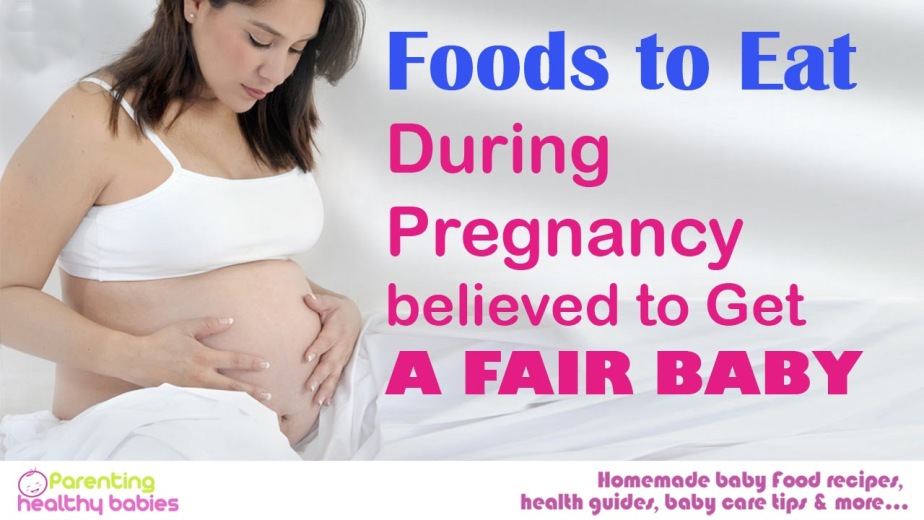
What will stress do to an unborn baby?
Hormones such as cortisol and adrenaline have an effect on the placenta. This affects your baby’s growth.
Adrenaline constricts blood vessels, reducing oxygen supply and blood flow. This can lead to problems for your baby in the womb.
Excessive stress in pregnancy increases the chance of:
- Maternal hypertension (raised blood pressure)
- Intrauterine Growth Restriction (IUGR)
- Poor placental function/placenta abnormalities
- Low birth weight
- Premature babies – prematurity significantly increases infant mortality
- Infection within the uterus
- Obstetric intervention – including induced labor and c section birth due to fetal concerns
- Admission to neonatal intensive care unit
- Delayed onset of breastfeeding, skin to skin, and bonding opportunities after birth.
It also increases the risk of a baby developing chronic health conditions in later life, such as:
- Raised blood pressure
- Cardiovascular disease
- Obesity
- Diabetes.

Interestingly, researchers are now examining links between the effects of stress in pregnancy and brain development.
It’s thought babies exposed to chronic high levels of stress, particularly in the first trimester, show increased signs of depression, irritability, and lowered IQ.
Stresses might also leave children less equipped to handle stressful situations, which makes it difficult for them to regulate their own emotions. It can also make them more likely to experience mental illness and behavioral problems.
There’s emerging evidence of a link between maternal stress, autism, and ADHD. Although this is relatively new research, it’s believed these neurodiversities are linked to a specific stress-sensitive gene.
Signs that your baby is stressed in the womb
It’s important to know that normal, small amounts of worrying aren’t going to cause problems for you or your baby.
Extreme or ongoing chronic stress appears to be of most concern for both women and babies.
How do you know if your baby is stressed?
Here are several things both you and your doctor can look out for, which could cause complications.
Fetal heartbeat
Observing and listening to your baby’s heartbeat is one of the ways your doctor can decide whether your baby is stressed in the womb. This is often diagnosed as ‘fetal distress’.
Your doctor will observe the heart rate pattern over a period of time, using a CTG (cardiotocograph) machine, or an electronic fetal monitor. Used along with ultrasound, this can give your doctor an insight into your baby’s overall health.
It isn’t advised for women to use home dopplers, monitoring devices, or apps to listen to their baby. It can lead to false reassurance. Leave this one to your doctor.
Abnormal fetal heart rate patterns
There are a number of characteristics that can be observed during a CTG monitoring, and show whether your baby is in distress:
- Fetal tachycardia – a consistently raised heart rate of >160 beats per minute
- Fetal bradycardia – a consistently lowered heart rate of <110 beats per minute.

- Decelerations – a temporary drop in the fetal heart rate
- Reduced variability – prolonged reduced variation in the fetal heart rate.
Abnormal patterns can indicate fetal distress, which can lead to oxygen deprivation if not acted on accordingly.
Other signs that your baby is experiencing fetal distress in the womb
- Decreased fetal movement or change in fetal movements. An active baby normally signals a happy and healthy baby. Any change or reduction in baby’s movements can be an early indicator your baby is in distress
- Cramping or back pain. This can be an early sign of miscarriage, preterm labor or urine infection
- Preterm contractions (under 37 weeks) is a likely sign your baby is on their way a little early
- Vaginal bleeding. Bleeding in pregnancy is always a cause for concern. It can indicate problems with the placenta, such a placental abruption or vasa previa.
 Seek medical advice from your doctor right away if you experience any bleeding in pregnancy
Seek medical advice from your doctor right away if you experience any bleeding in pregnancy - Abnormal AFI (Amniotic Fluid Index). Whether oligohydramnios (low) or polyhydramnios (high), this is considered a complication of pregnancy. Amniotic fluid levels are an indicator of your baby’s health
- High blood pressure or preeclampsia. Blood pressure problems can affect the way your baby grows and, if very high, increase the chance of your baby needing to be born early
- Sudden weight gain. Pregnancy weight gain outside of the normal range can cause fetal distress
- Meconium. Meconium in amniotic fluid can be an indicator of distress in your baby
- Maternal illness. If you are unwell in pregnancy it may also affect your baby.
How much is ‘too much’ stress?
All women will experience a certain amount of stress in pregnancy and that’s normal.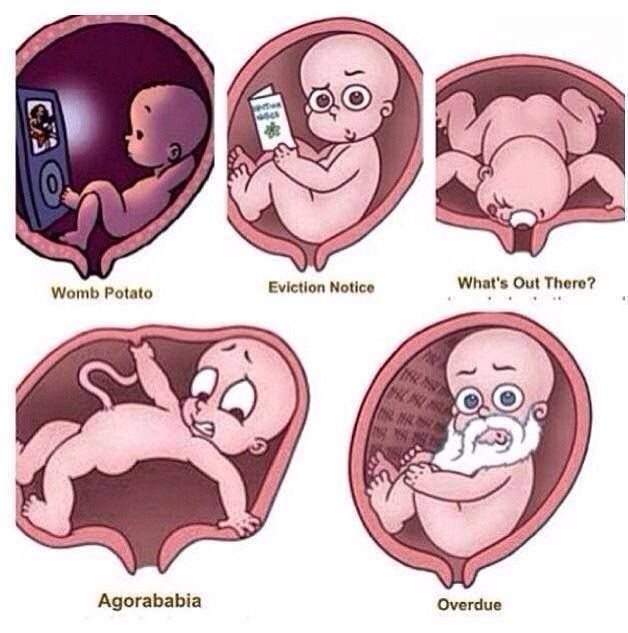 Just because women become pregnant, doesn’t mean life stops happening around them.
Just because women become pregnant, doesn’t mean life stops happening around them.
Fleeting ‘every day’ stresses, such as running late for an appointment, getting stuck in traffic, or forgetting to pack the kids’ lunch boxes isn’t likely to cause a problem.
Ongoing stress that interferes with your ability to cope with other things is the type that is called chronic. This can be considered ‘too much’, and needs to be managed.
What kinds of stress are harmful?
Stress becomes harmful when it becomes chronic. Stresses might caused by major events such as the death of a loved one, poverty, homelessness, domestic violence, acts of discrimination or racism, or by excessive worrying or fears.
Constant fears about pregnancy, loss of life, or losing the baby, as well as trauma or prolonged stress, all increase stress hormones in the amniotic fluid.
This level of stress is likely to have an impact on your baby’s development.
Everyone deals with stresses differently, but they commonly lead to some unhealthy habits or behaviors, such as:
- Under or over eating
- A reliance on comfort or junk foods, or ‘treats’
- Poor sleep patterns
- Alcohol use
- Smoking
- Drugs or substance misuse.

So no stress is best, right?
Having said all that, it’s impossible to eliminate all elements of stress from our lives.
Although it would be nice to cocoon ourselves in a layer of bubble wrap and ward off potential worries as they head our way, it’s just not possible.
Added to that, the human brain actually requires a certain amount of stress – not too much, but not too little – for its normal development.
Are You Getting BellyBelly’s Pregnancy Week By Week Emails?
We think they’re the best on the internet!
Click to get the FREE weekly updates our fans are RAVING about.
Is it normal if baby moves a lot in the womb?
Generally, an active little one is a reassuring sign all is well with your baby in the womb.
Throughout your pregnancy, you’ll get to know the normal pattern of your baby’s movements. This pattern of movement should continue throughout pregnancy, even as you approach the onset of labor.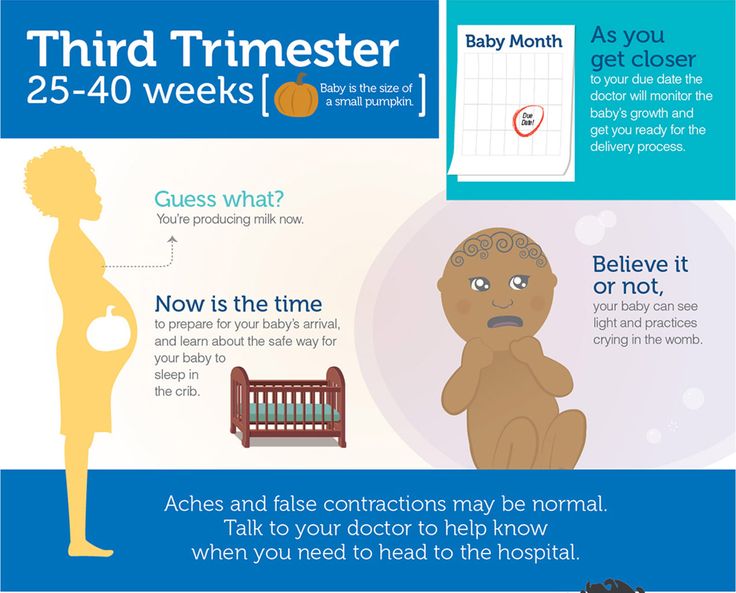
There isn’t really such a thing as ‘too much’ fetal movement.
Very occasionally, a sudden short, violent increase in your baby’s movements, can be a sign of acute fetal distress, related to problems with the cord, or placental abruption.
Rest assured, though; this is extremely rare.
Be sure to read Do All Babies Go Quiet Before Labor for more information on normal fetal movements.
Tips to reduce stress in pregnancy
It’s unrealistic to expect we can banish all stressful scenarios from our lives. Stress often comes, though, from the worry we feel when we are in certain situations, or facing certain problems.
Even if we can’t change those situations, taking positive action to tackle the problems can sometimes make us feel a lot better.
Use this time in your pregnancy to make sure a few plans are in place. Set up a system of support for yourself and your partner.
Be sure to:
- Ask for help
- Speak to someone you trust about your concerns
- Seek professional help if – maybe a doula/midwife, support for your business, a cleaner, or child minder
- Tackle your finances
- Get outdoors and exercise
- Consider mindfulness practices, such as yoga, which have been shown to reduce the chance of pregnant women developing depression and anxiety.

Find more practical tips in how to reduce stress in Stress During Pregnancy | How Does Stress Affect Pregnancy?
Trust your instinct
Some health care professionals discount a mother’s intuition in favor of ‘facts’ or ‘data’. Pregnant women, however, are normally very much in tune with their unborn babies, and have a ‘sixth sense’ telling them when things are wrong.
Trust that instinct and be guided by it. No one knows your baby better than you.
If you’re worried about your baby, make sure you speak to your health care provider for further advice.
Pregnancy stress threatens the health of the unborn child - DW - 11/07/2013
ScienceEurope
Vladimir Fradkin
November 7, 2013
It is well known that severe stress is harmful Now scientists have taken up the question of how the stress experienced by the mother during pregnancy affects the health of the child.
https://p. dw.com/p/1ADc4
dw.com/p/1ADc4
Advertisement
Pregnancy, even if it is not the first, is, of course, quite stressful in itself. But even if this were not so, hardly any woman manages to avoid the stress caused by various events of everyday life for all nine months. And therefore, almost any expectant mother asks the question: how will the stress she experiences affect the child? Can the fear, pain, grief, irritation, or arousal of the mother be transmitted to the fetus in the womb? nine0003
Mother's stress hormone in the blood of the embryo
Not only can be transmitted, but are necessarily transmitted, although, of course, still not in full, doctors say. The placenta contains a number of hormones designed to protect the fetus from the harmful effects of cortisol, the mother's stress hormone. But it still penetrates into the blood of the embryo. True, there its concentration is about 10 times lower than the maternal one, however, it is also enough to have a significant effect on the fetal body.
And not just significant, but long-term, often even permanent. This conclusion was reached by a group of doctors led by Professor Matthias Schwab (Matthias Schwab) from the Hans Berger Neurological Clinic at the University Hospital of Jena. The scientists reported the results of their research at the 21st annual session of the German Somnological Society, which took place in Wiesbaden.
"Prenatal stress leads to a long-term increase in fetal cortisol levels and accelerates brain maturation," says Prof. Schwab, head of the Intrauterine Brain Development and Later Life Programming of Disease Working Group. pregnancy is a serious risk factor that increases the likelihood of a child developing later depression and other pathologies. nine0003
Dreams of a lamb in the womb of a sheep
Professor Schwab and his colleagues carried out their experiments on sheep, since in these animals the course of pregnancy and the formation of the embryo have a significant similarity with the same processes in humans. Pregnant - that is, pregnant - sheep, the researchers injected betamethasone, a synthetic glucocorticoid drug related to cortisol, which is often prescribed to women with the threat of preterm birth. This drug speeds up the development of the lungs in the fetus, which increases the chances of a premature baby to survive. Betamethasone was administered to pregnant sheep at a stage corresponding in pregnant women to the period between the 25th and 32nd weeks. nine0003
Pregnant - that is, pregnant - sheep, the researchers injected betamethasone, a synthetic glucocorticoid drug related to cortisol, which is often prescribed to women with the threat of preterm birth. This drug speeds up the development of the lungs in the fetus, which increases the chances of a premature baby to survive. Betamethasone was administered to pregnant sheep at a stage corresponding in pregnant women to the period between the 25th and 32nd weeks. nine0003
At the same time, scientists monitored the intrauterine brain activity of embryos using electroencephalography. It turned out that betamethazole accelerates the maturation of not only the lungs, but also the brain, says Professor Schwab: “This is evidenced, first of all, by the early appearance of dreams. Usually, the formation of dreams occurs in the last third of pregnancy, and this development occurs very gradually. And betamethasone literally includes there is some kind of toggle switch in the brain, and dreams are formed in 2-4 days.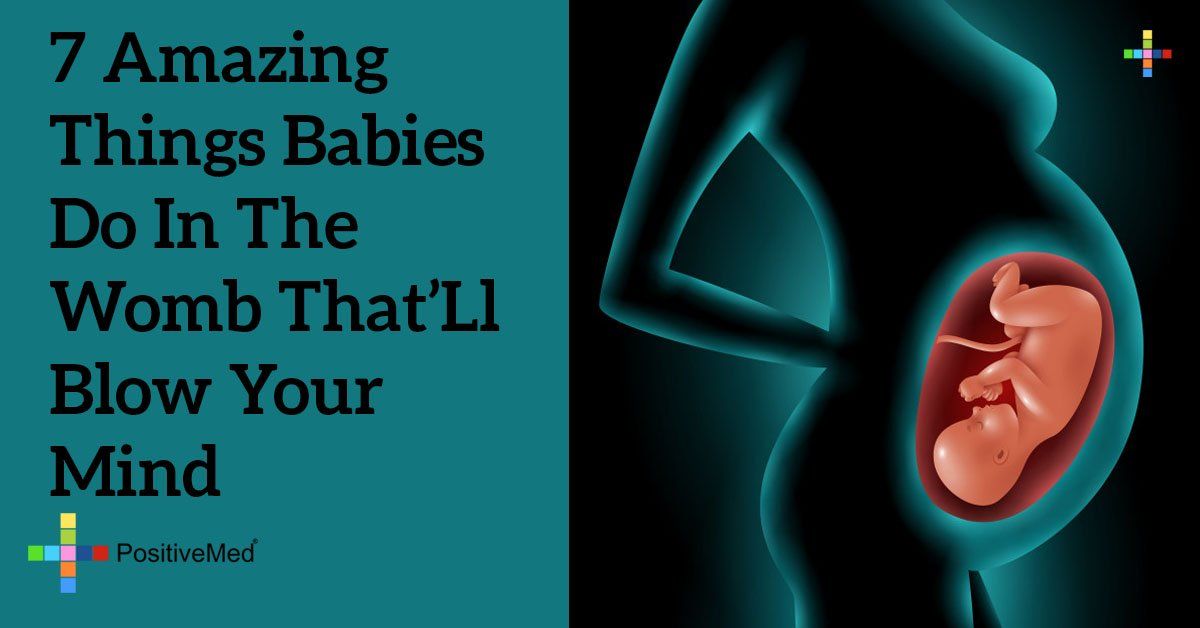 " nine0003
" nine0003
Brain development inhibits cell growth and division
Another consequence of hormone administration was an abnormally frequent alternation of REM and non-REM sleep phases. This fragmentation of sleep, if it becomes permanent, indicates a high risk of developing depression later in life and, according to Professor Schwab, is often diagnosed in newborns whose mothers experienced severe stress during pregnancy.
The problem is that the premature maturation of the brain structures occurs due to a slowdown in cell division and body growth, the scientist says. This is confirmed by other doctors. “Children given injections to accelerate lung maturation showed a very significant increase in stress axis activity and had a markedly lower birth weight,” says Thorsten Braun, a gynecologist at the Charite University Hospital in Berlin. nine0003
Therapy with betamethasone is fraught with behavioral problems
In Germany, 8 to 10 percent of pregnant women receive betamethasone. The fact that this drug reduces mortality among premature babies by 31 percent has long been scientifically proven. However, animal experiments have shown that taking the drug also causes long-term side effects - in particular, hypertension - and also contributes to the development of cardiovascular diseases and diabetes in later life.
The fact that this drug reduces mortality among premature babies by 31 percent has long been scientifically proven. However, animal experiments have shown that taking the drug also causes long-term side effects - in particular, hypertension - and also contributes to the development of cardiovascular diseases and diabetes in later life.
As far as humans are concerned, scientists have found, first of all, an increased risk of developing depression and behavioral anomalies. Recently, Professor Schwab and his colleagues examined 40 eight-year-old children who had previously undergone intrauterine therapy with betamethasone. Comparing the test results of these children with the test results of children in the control group revealed significant differences, the scientist emphasizes: ". Electroencephalography also showed that these children could not relax before testing, and could not concentrate during testing. nine0003
There is no reason to panic
Apparently, the increased content of the stress hormone in the blood at the stage of prenatal development leads to the fact that the body of the embryo gets used to this situation and begins to perceive it as the norm. "These babies are already programmed in the womb to produce too much of the stress hormone later in life," says Professor Schwab.
"These babies are already programmed in the womb to produce too much of the stress hormone later in life," says Professor Schwab.
Dutch colleagues of a German scientist - physicians of the University of Tilburg - found that maternal stress affects the fetus most negatively between the 12th and 22nd weeks of pregnancy: its consequences make themselves felt even 20 years later. nine0003
But there is still no need to panic, says Prof. Schwab: "Stress during pregnancy is completely normal. And injections of betamethasone, this hormonal booster of lung development, are an important and necessary therapy if there are indications for it. You just need to keep in mind that an elevated level of stress hormone in the blood of the embryo appears to play a more important role in the development of later diseases than has been previously believed.
Write to the editor
Advertising
Skip section Related topicsRelated topics
View more
Skip section Top topic1 page of 3
Skip section Other publications DWHome page
Life before birth - Dixion Medical Center in Orel
The author of the article is
Olga Mikhailovna Khoreva,
psychologist of the clinic "Dixion"
In modern society, we no longer treat pregnant women with such trepidation, but at the same time we still know little about the life of a person in the womb of a mother.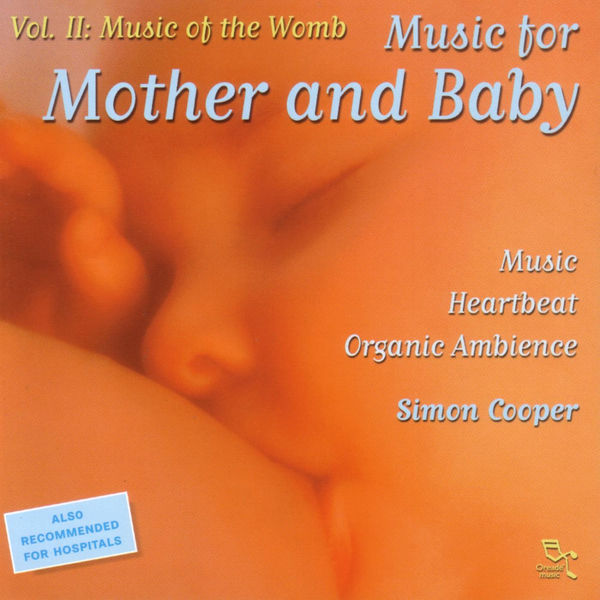 We have little idea what it feels like to happen. Perinatal psychology reveals these mysteries. nine0003
We have little idea what it feels like to happen. Perinatal psychology reveals these mysteries. nine0003
This kind of psychology appeared not so long ago, about forty years ago. This science studies the mental life of a baby in the womb or a newborn, his connection with his mother, the influence of her psychological state on him.
Many scientists claim that the fetus has a long-term memory and mental life.
The perinatal period has a great influence on the future of a person. It turns out that what happened to him in the womb, as well as during and after childbirth, is stored in his subconscious. In the future, these events affect how a person will become, how he will behave in certain situations. nine0003
The events of the perinatal period can be divided into three stages: pregnancy, childbirth and the postpartum period.
Stage 1: Pregnancy
At this time, a person's life potential is formed, the ability to adapt to various conditions. Dear mothers, learn to love your child in the tummy, even if his appearance was not a very pleasant surprise for you!
According to scientists, the basic physical and mental potential of the desired child is much higher. Otherwise, children do not sleep well, are easily upset, and cannot calm down for a long time. Often they are physically weaker than desired children. nine0003
Otherwise, children do not sleep well, are easily upset, and cannot calm down for a long time. Often they are physically weaker than desired children. nine0003
The baby in the mother's belly is very sensitive to her mood. He hears, sees, tastes and touches. The child "sees the world" through the eyes of the mother, perceives it through her emotions. Therefore, pregnant women are asked to avoid stress, not to worry.
The child succeeds in all this with the help of hormones that come to the child through the placenta, and with the help of the mother's electromagnetic field. Scientists believe that mother and child communicate by means of millimeter-wave electromagnetic waves. nine0003
It is possible that some of the information is transmitted to the child through the aquatic environment of the mother's body. But the baby still in the womb can show independence. From about the tenth week, the fetus feels touch, that is, it has a sense of touch. From the eighteenth week - begins to distinguish the taste and drink amniotic fluid. At this time, you need to carefully monitor your menu - you can teach your child to eat "not right."
At this time, you need to carefully monitor your menu - you can teach your child to eat "not right."
Hearing develops around the twenty-second week, but the children do not hear external noise well. They are disturbed by the sound of the work of the internal organs of the mother. But they hear their mother perfectly. So we recommend expectant mothers to sing songs, read aloud and just talk to your baby. nine0003
This is best done when the baby is awake. This time is easy to determine. Usually during this period the child is actively moving. It will be great if every day during this period you communicate with him like this: touch your tummy and say something, for example: “Hello, baby.” Over time, the conversations will become longer, and the child will respond to touches by pushing. It is advisable to involve older children and dad in this game. Just keep in mind that each family member should have a “own” part of the tummy for touching and their own “sound code”. In this way, the baby's sense of touch and hearing are developed, and it also has a positive effect on the emotional development of the child. nine0003
nine0003
By the twenty-fourth week, the child's pupils are able to react to light. Some scientists believe that complete darkness reigns in the womb, others that the red part of the spectrum enters the uterus. The baby will learn to distinguish smells only when he is born - being in the womb, he will trust the mother's sense of smell.
Stage 2: Birth
Who will be the child in the "big" life - will he be a "winner" or "victim", how will he fight for a place under the sun - this is determined during this perinatal period. nine0003
Scientists believe that natural childbirth has the best effect on the future of the baby. Stimulation of childbirth has a negative impact on the mother and child - it breaks their interaction, speeds up the process against their will, so it is worth resorting to it only for medical reasons. Despite the fact that with a planned caesarean section, everything happens painlessly for the baby, many scientists believe that in this case your child will not become a fighter, and they do not recommend resorting to cesarean section unnecessarily. nine0003
nine0003
If you want your child to be a fighter, behave properly when pushing, and then the mouse will become more assertive in the performance of the tasks assigned to him, act accordingly and perceive various situations objectively.
Breathing will help to behave properly during contractions and strains, and it will also help reduce pain. You can learn how to breathe correctly during childbirth on your own or in courses for pregnant women. During childbirth, listen carefully to what the midwife says and try to follow her advice. nine0003
Husband, mother or other close person can provide great support and assistance during childbirth. The so-called joint births have a number of advantages: during contractions, the mother will not be alone with pain, there will be a loved one nearby who can distract her, support and help in this difficult situation; besides this close person is easier to perceive than a stranger, so the words of the midwife, repeated by the husband, will reach your consciousness faster.
Stage 3: Postpartum
According to scientists, at this perinatal stage, a person's attitude to freedom, his capabilities and strengths is formed. Therefore, during natural childbirth, the child is immediately placed on the mother's stomach. He sees his mother, feels her warmth, that is, he feels protected. Immediately after birth, the baby looks at his mother's face - he seems to get to know her again. This process of "gazing" is called bonding.
Psychologists say that during this process a stable emotional bond is formed between mother and child. If the father, whom the baby had only heard before, is next to the newborn and the mother, it will be just great - he will also be involved in the bonding process. It will be great if dad takes the baby in his arms, hugs him, talks to him. The presence of the father is especially important in the case of a caesarean section. While the doctors are "conjuring" over the mother, the baby will be in the hands of the father. nine0003
nine0003
If it happens that a child cannot be with his mother for a long time after giving birth, then in life independence may become a burden for him. But with good care, breastfeeding for up to a year, tenderness and love, this state of affairs can be corrected.
Breastfeeding is a very important moment that affects both the emotional and physical development of the child.
The composition of breast milk is individual and ideal for just one baby. This composition changes during the day and days of a newborn's life. nine0003
Emotions are the thread that connects mother and child - they still form a single whole, but in the psycho-emotional, and not in the physical plane. The newborn is very sensitive to the mood of the mother. If the mother is upset, then the baby also behaves restlessly.
An important factor influencing the emotional development of a child is the attentive, sensitive attitude of his parents both to him and to each other. You need to spend as much time as possible together, smile, hold the child in your arms more often.






